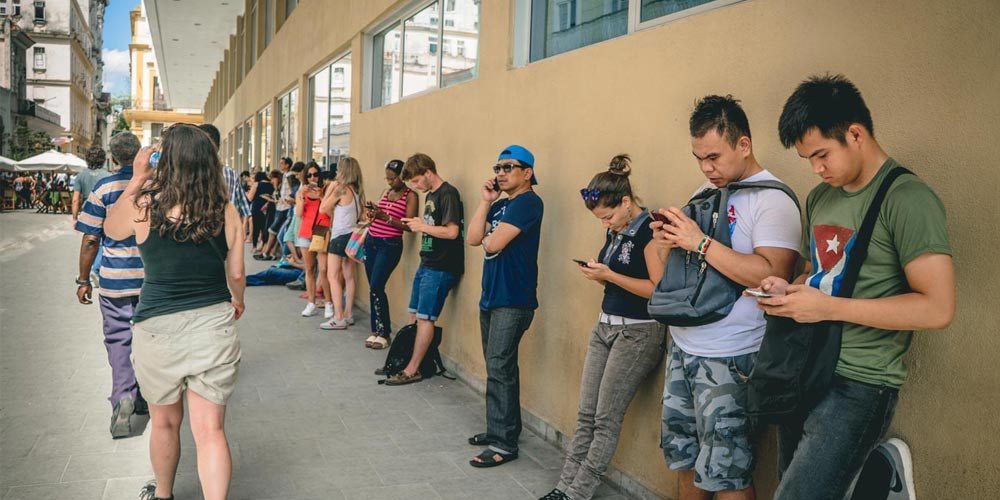The Communist-run Cuba has started providing internet on mobile phones.
As one of the least connected country in the Western Hemisphere, Cuba is opening itself. Initially, journalists at state-run news companies were among the first that get the mobile internet provided by Cuba’s telecommunication monopoly ETECSA.
This move is part of President Miguel Diaz-Canel's wider campaign for greater internet access to boost the economy and help Cubans defend their revolution.
Cuba has long-lagged behind in web access. Until 2013, internet was mostly available only in public places at tourist hotels. Only 5 percent of people in Cuba could access the World Wide Web, with many others relied on local services for receiving world news, YouTube videos, pirated movies, and smartphone apps for a couple of dollars a week.

But starting December 2017, certain privileged customers which include companies and embassies, have been able to buy mobile data plans according to ETECSA.
Since then, the government has made connectivity a priority. This can be seen when it started introducing cybercafes and outdoor Wi-Fi hotspots, as well as connecting homes to the web.
While most mobile phone owners in Cuba are smartphone owners, price is seen as the biggest restriction for many. With hotspots are about $1 an hour, it's huge if compared to the average state monthly salary at $30. Initially, ETECSA is charging companies and embassies $45 a month for 4 gigabytes.
"We need to be able to put the content of the revolution online," said Raul Castro, the First Secretary of the Communist Party of Cuba, to the parliament. He added that Cubans could thus "counter the avalanche of pseudo-cultural, banal and vulgar content."
Analysts said that Cuba in allowing more of its citizen to access the broader web, is weakening the government’s control of what information reaches its people. This can pose problems in the one-party island state that has a monopoly on the media.
At the time, Cuba only installs 3G technology. This is a contrast to most in Latin America that have moved to 4G, with even tested 5G.
And by the end of 2018, ETECSA has plans to expand its mobile internet to all its 5 million mobile phone customers, or about half of Cuba’s entire population.